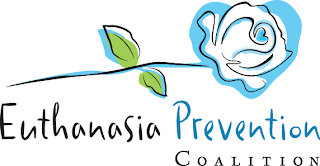UN DAY OF CELEBRATION FOR
PEOPLE WITH DISABILITIES MARRED BY CONFLICT
FOR IMMEDIATE RELEASE - December 1, 2011

As the United Nations celebrates the International Day of People with Disabilities, on December 3, Canadians with disabilities find themselves at the brink of an attack on their fundamental human rights and collective equality, says Toronto lawyer and disability rights advocate Hugh Scher.
In British Columbia, and Quebec, Courts are being asked to remove the prohibitions against assisted suicide and euthanasia, a move that would threaten the lives of people with disabilities in Canada.
As former Chair of the Council of Canadians Human Rights Committee, Scher states:
“These court cases represent a fundamental threat to the lives, security and equality of people with disabilities across Canada, who may be unwilling victims of new death practices in Canada if the Courts defy the express will of Parliament, that overwhelmingly defeated a bill to legalize assisted suicide across party lines last year.”
Euthanasia Prevention Coalition Executive Director Alex Schadenberg states:
“The language of the Carter case allows family members to be involved with the death. The Canadian government recognizes elder abuse as a crime that is done by family, friends and care-givers or other person in a situation of power or trust.”
Canadian war veteran and disability rights advocate John Coppard states:
"If the law had allowed it several years ago, I may have requested assistance to suicide. That would have been the greatest mistake of my life and one that could not have been corrected."
As people with disabilities celebrate accomplishments of greater inclusion, accessibility and integration, there remains much work to do in improving access to society’s most basic institutions and enhancing health care practices, including accessibility to palliative care. Disability rights advocate Rhonda Wiebe, who co-chairs the Ending of Life Ethics Committee of the Council of Canadians with Disabilities said:
“A discriminatory attitude that suggests that our lives are less than equal represents an affront to our most basic human rights”
For more information please contact:
Alex Schadenberg - 519-439-3348
Hugh Scher - 416-816-6115
John Coppard - 250-508-3446
Rhonda Wiebe - 204-779-4493
 I am greatly perplexed when I hear euthanasia proponents talk about a "basic human right to die," when there is no such thing. We are all going to die anyway, so let's please be honest and call it what it is: The right to be killed by somebody else. I am deeply disturbed by people who overlook the failure of the euthanasia experiments in other countries. Why do they coldly dismiss all those hundreds of people who have been euthanized without their consent? Do they consider them collateral damage? Would they call for an absolute right to drive for everybody, even if they knew lots of innocent people would be killed by incompetent drivers? I don't think so.
I am greatly perplexed when I hear euthanasia proponents talk about a "basic human right to die," when there is no such thing. We are all going to die anyway, so let's please be honest and call it what it is: The right to be killed by somebody else. I am deeply disturbed by people who overlook the failure of the euthanasia experiments in other countries. Why do they coldly dismiss all those hundreds of people who have been euthanized without their consent? Do they consider them collateral damage? Would they call for an absolute right to drive for everybody, even if they knew lots of innocent people would be killed by incompetent drivers? I don't think so.






